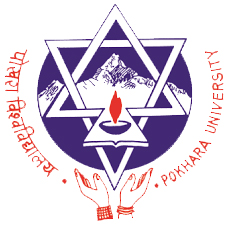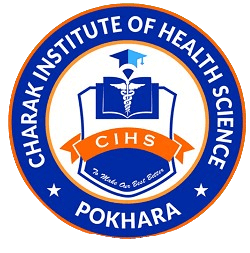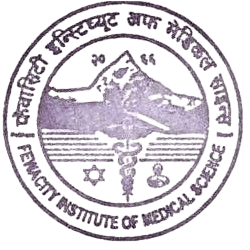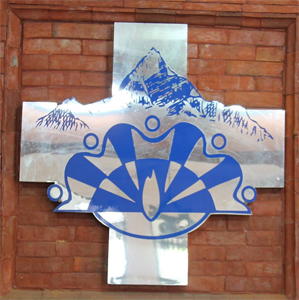Overview
Manipal College of Medical Sciences (also known as Nepal Manipal College of Medical Sciences - NMCOMS) in Pokhara is a prominent academic institution in Nepal dedicated to producing competent medical professionals who can address national and global healthcare needs. Established in 1994 under the Manipal Education and Medical Group (MEMG) and affiliated with Kathmandu University, the college was Nepal’s first private medical college. It is recognized by the Nepal Medical Council and listed in the World Health Organization’s Directory of Medical Schools.
Operating across two campuses—Deep Campus for pre-clinical studies and Phulbari Campus housing the Manipal Teaching Hospital (MTH)—MCOMS offers undergraduate, postgraduate, and allied health programs. The institution attracts students from Nepal, India, South Asia, Africa, the Middle East, and other regions, creating a multicultural learning environment that enhances academic and personal development.
Quick Highlights
-
Founded: 1994
-
Affiliation: Kathmandu University, Nepal
-
Recognition: Nepal Medical Council, WHO Directory of Medical Schools, ECFMG (USA), and PLAB (UK) eligibility
-
Campuses: Deep Campus (8 acres), Phulbari Campus (30 acres)
-
Hospital Capacity: 750-bed Manipal Teaching Hospital
-
Annual MBBS Intake: 100 students (including 22% scholarship seats)
-
Student Strength: Over 800 current students, 3500+ alumni
-
International Students: Representation from 15+ countries
-
Specializations: MD, MS, DM, MCh, BSc Nursing, BSc in Allied Health Sciences
Academic Programs Offered
MCOMS delivers a range of medical and health science courses, aligned with Kathmandu University curricula and global accreditation standards.
Undergraduate Programs
-
MBBS – Five-and-a-half-year program including internship, with a curriculum combining theoretical, laboratory, and clinical training.
-
BSc Nursing – Four-year degree with a focus on clinical skills, patient care, and nursing leadership.
-
BSc in Medical Imaging Technology (MIT) – Three-year course on radiographic and imaging techniques.
-
BSc in Laboratory Medicine – Training in diagnostic laboratory services for hospitals and research centers.
-
Bachelor in Health Informatics – Combines healthcare knowledge with information technology skills.
-
Bachelor in Yogic Science and Wellbeing (BYSW) – Integrates modern healthcare concepts with traditional yogic practices.
Postgraduate and Super-Specialty Programs
-
MD/MS Specializations: Internal Medicine, Paediatrics, Obstetrics & Gynaecology, General Surgery, Orthopaedics, Pathology, Microbiology, Anaesthesiology, Psychiatry, Ophthalmology, ENT, Pharmacology, Community Medicine, Physiology, Radio Diagnosis.
-
DM/MCh Programs: Cardiology, Gastroenterology, Neurosurgery.
-
Allied Health MSc Programs: Medical Microbiology, Fellowship in Adult Critical Care.
PCL Nursing
-
PCL Nursing – Enrolls students through government nominations and offers full scholarships for 10% of Nepalese students.
Admission Process
All admissions are conducted through the Medical Education Commission (MEC), Government of Nepal.
Steps:
-
Application to MEC – Candidates must apply via MEC’s official portal.
-
Entrance Examination – MEC conducts a standardized medical entrance test.
-
Merit-based Selection – Admission is granted based on entrance scores, available seats, and applicable scholarship categories.
-
Document Verification – Academic transcripts, citizenship, and medical fitness certificates are required.
Contact for Admission Queries:
-
Email: mcoms@manipalpokhara.edu.np
-
Phone: +977 9802804000
Teaching Faculty and Learning Methodology
MCOMS employs over 135 qualified faculty members, many with international training and research experience. The teaching approach integrates:
-
Lectures and Tutorials – Foundational and clinical knowledge delivered in interactive sessions.
-
Problem-Based Learning (PBL) – Case studies encourage critical thinking and practical problem-solving.
-
Laboratory Work – Pre-clinical and clinical labs equipped for anatomy, pathology, microbiology, and diagnostic practice.
-
Clinical Rotations – Early exposure to patient care in hospital wards, OPDs, and specialty clinics.
-
Continuous Assessment – Fortnightly, mid-semester, and end-semester evaluations using MCQs, SAQs, and practical exams.
Infrastructure and Learning Facilities
Deep Campus
-
Houses pre-clinical departments, basic science laboratories, lecture halls, and hostels for early-year students.
Phulbari Campus
-
Location of the Manipal Teaching Hospital (MTH), postgraduate training facilities, and specialized diagnostic units.
Manipal Teaching Hospital
-
Capacity: 750 beds (500 operational)
-
Facilities: Modular OTs, ICU units, NICU, dialysis, advanced imaging, and laboratory services.
-
Specialty Clinics: Cardiology, Gastroenterology, Neurosurgery, Oncology, Endocrinology, and more.
Libraries and Digital Resources
-
Central library with physical and e-resources, high-speed internet, and access to international journals.
Hostels and Dining
-
Separate residential blocks for male and female students with twin-sharing rooms, internet access, hot water, and dining facilities.
Student Life and Campus Experience
Life at MCOMS blends academic rigor with opportunities for cultural exchange and personal growth. Students engage in:
-
Academic societies and health-related clubs.
-
National and international health campaigns.
-
Cultural festivals showcase traditions from multiple countries.
Extracurricular Activities (ECA)
MCOMS encourages balanced development through:
-
Sports: Cricket, football, basketball, and badminton.
-
Cultural events: Music, dance, and drama competitions.
-
Student-led organizations: Debate clubs, community health outreach groups.
Scholarships and Financial Support
-
Government of Nepal Scholarships: 20% seats in MBBS and BSc Nursing for MEC-nominated candidates (no tuition fees).
-
Institutional Support: Subsidized fees for selected Nepalese students.
-
PCL Nursing Scholarships: 10% of Nepalese students receive full scholarships.
Achievements and Institutional Milestones
-
First private medical college in Nepal (1994).
-
Consistent graduate success in international licensing exams (USMLE, PLAB, AMC).
-
Over 3500 alumni working in healthcare systems across Asia, Africa, Europe, and North America.
-
Recognized as a training center for multi-specialty medical services in western Nepal.
Why Choose This Institution?
Prospective students opt for MCOMS due to:
-
Diverse academic programs from undergraduate to super-specialty levels.
-
Affiliation with a reputed university and recognition from global medical boards.
-
Exposure to a multicultural learning environment.
-
Integration of modern medical education with extensive clinical practice.
-
Commitment to community service and public health improvement.
Conclusion
Manipal College of Medical Sciences stands as a significant contributor to Nepal’s healthcare education and service delivery. Through its structured programs, dedicated faculty, advanced medical infrastructure, and multicultural environment, it prepares graduates capable of addressing diverse health challenges both in Nepal and internationally. The institution remains committed to academic excellence, ethical medical practice, and meaningful contributions to society.







.png)











You need to login to comment.